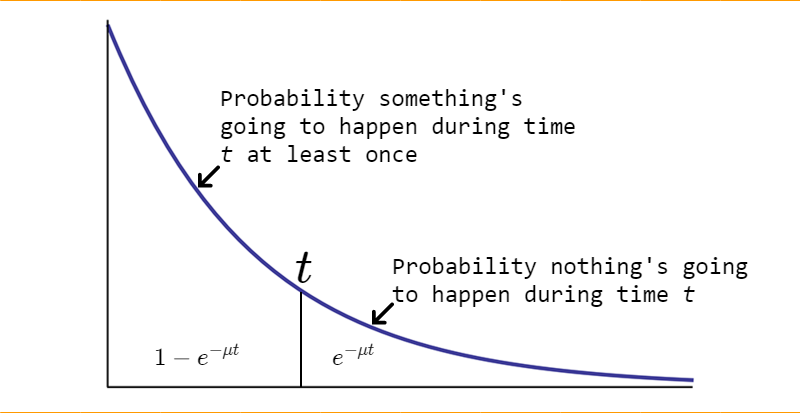Using the Exponential
Distribution to Find
Probabilities for Times
The mean, , of the Poisson distribution tells us how often we expect something of interest (an outcome) to happen within a certain period of time.
If the period of time you've chosen is, say, an hour, then
is the number of outcomes you expect in t hours. It's t times the hourly rate, .
(Note: t can be less than an hour: t = 0.5 is a half hour, t = 0.1667 is ten minutes, etc.)
So if the Poisson formula
gives us the probability of an outcome occurring X times in an hour, then
is the probability of it occuring X times in t hours.
This modified Poisson formula now has an explicit time variable in it and, thus, gives us a better basis for turning the question around.
Instead of asking how often something will happen in a set period of time, we can now ask the time it takes for the outcome to happen once.
How much time it takes on average to get a single outcome is like asking the time span between outcomes, that is, the time where no outcomes occur at all.
If we want to know the probability of getting an outcome in t minutes, hours, days, etc., we simply ask our modified Poisson formula to give us the probability of getting X = 0 outcomes during the time interval t. It gives us:

Here's what our new distribution looks like:
Time
1. Probability - Exponential Distribution
By smilinjoe
1. Probability - Exponential Distribution
- 1,031



